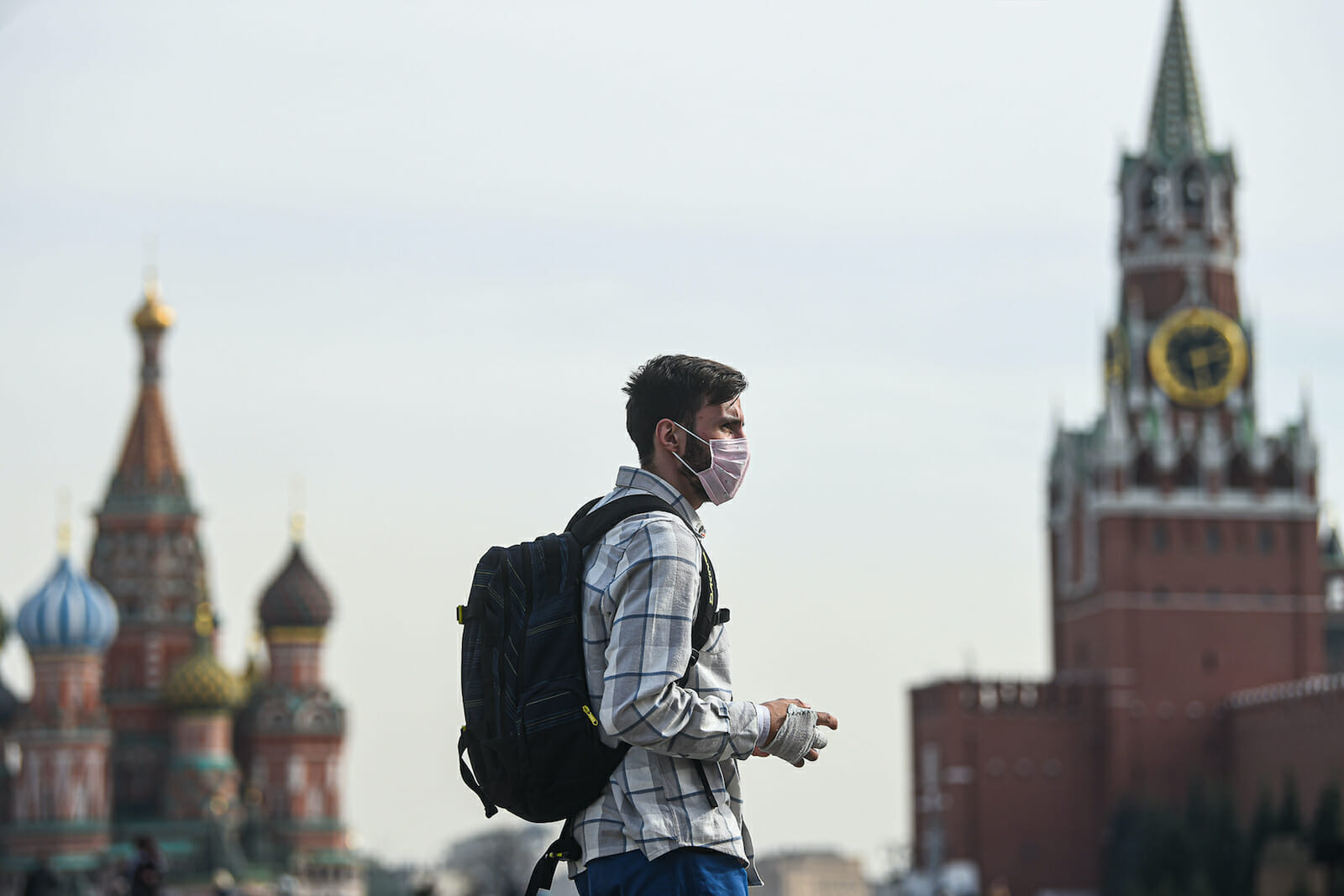
The Negative Aspect of the Coronavirus Outbreak Fuels Our Interest in Crisis Reporting: Dr. Marc Owen Jones
Media headlines these days are invariably dominated by developments surrounding the global outbreak of COVID-19 that first surfaced in Wuhan, China in December 2019, and was declared a “pandemic” by the World Health Organization on 11 March 2020.
The deadly virus, which shares many symptoms with regular influenza, has affected over 2oo countries and territories, claimed nearly 132,000 lives and has triggered unprecedented shutdowns, cancellation of events and gatherings, confined students and clerical workers to homes and prompted many governments to impose national quarantines.
SARS-CoV-2 is the name given to the novel coronavirus and COVID-19 is the disease associated with it. The virus was not previously detected in humans, and so far, no categorical cure has been introduced for it. The lethality of COVID-19, its mysterious nature and its rapid spread, coupled with the limitations governments face in clamping down on it have generated global panic and anxiety. States, media, celebrities, and experts are proselytizing “stay at home” campaigns and promoting the practice of “social distancing” to minimize the transmission of the virus.
Aside from its health impacts, the coronavirus pandemic has had dire consequences for world economies, too. A case in point is the tourism and travel industry: thousands of flights have been canceled and hotels and airports are empty. Also, world stock markets have been in turmoil over coronavirus fears. As reported by the BBC, the Dow Jones “saw its biggest one-day decline since 1987” in the second week of March. The Organization for Economic Cooperation and Development (OECD) has predicted that the global economy “could grow at its slowest rate since 2009 this year” due to the harrowing outbreak.
At such a critical time and as almost the entire world is contending with a colossal health crisis, the role of the media in educating, enlightening and reassuring the public is decisive. Fake news and misinformation are in vogue more than ever and misleading clues, ranging from unscientific health advice to inaccurate figures about the victims of the disease have made their way to the pages of newspapers and news websites and airwaves of TV and radio stations.

Dr. Marc Owen Jones (@marcowenjones) is an Assistant Professor in Middle East Studies and Digital Humanities at Hamad bin Khalifa University, Doha. He has edited two books, and an upcoming monograph on political repression in Bahrain with Cambridge University Press. His writings have appeared on the Washington Post, New Statesman, CNN, the Independent, PEN International, and several other outlets.
I talked to Dr. Jones about the responsibility of the media in educating the public at the time of a public health emergency, the global traction of misinformation and disinformation and the importance of accuracy and integrity in professional crisis reporting.
Our conversation, conducted via email, is below.
A great deal of misinformation has been generated around the global coronavirus pandemic. From health magazines offering misleading medical recommendations on how to avoid contracting the virus to news websites giving distorted figures about the number of fatalities, people in different countries have been fed fallacious and unfounded information in recent weeks. What do you think are the reasons?
I think it is human nature to crave information in times of crisis. In some cases, the journalistic need to break a news story first or to be seen as the first port of call for information can lead to mistakes being made, and slack verification. For those with an advertising business model, it could simply be that potential solutions to this pandemic will sell, as people are desperate for protection. In this regard, magazines might be deliberately exploiting people’s desire for health solutions. Of course, it can also be sloppy journalism or ignorance of science. Let us not forget, in the world of alternative medicine, there will be a desire to propose non-conventional solutions to the problem. Sadly, the anti-science approach can be very harmful or unhelpful.
I find the variations of death rate difference between countries for corona virus fascinating. I know there are lots of variables, e.g. population age, response, medical system, means of counting, but it is quite striking. #Covid_19
— Marc Owen Jones (@marcowenjones) April 15, 2020
Is it accurate to say certain media organizations have an interest in sensationalizing stories that have the potential to appeal to people’s emotions and fears, and profit from aggrandizing them? Has the diversification of news sources resulted in some media outlets forfeiting their ethical principles in order to attract readers and make revenue?
Absolutely, in an increasingly privatized media sphere where public service broadcasting is in decline, news outlets and other news sites often rely on driving web traffic to their websites in order to secure higher advertisement revenues. If you can secure more traffic to your website then you will inevitably make more money. The way to drive traffic can often be to exploit people’s emotions, especially in times of vulnerability. People are more likely to click on articles that evoke strong emotions like fear, disgust or panic. Hence, sensationalism pays – for certain businesses.
What are some of the main reasons why reporting and analysis of the coronavirus outbreak has dominated the headlines? Can it be linked to negativity bias, which is our collective, unconscious hunger for traumatic events?
It is a global pandemic, and for that reason, media stations around the world are reporting on the same story, which adds a sort of critical mass to the story. Certainly, the negative aspect of the story fuels our interest, but the notion of a deadly, invisible and relatively poorly understood disease is also in itself an unpleasant and newsworthy threat. It is also a rapidly changing situation, which lends itself to the notion of constant “breaking news.” There is also politics behind it. In our polarized times, the poor reaction of governments to the outbreak is then used by partisan media outlets to attack their rivals, leading to an increase in coverage.
Some experts theorize that although many people complain about the lack of sufficient reporting about positive developments in the media, they are the audiences themselves who train and condition the journalists to regularly provide them with reportage on sad, tragic happenings and that’s why, for example, crime stories are ubiquitously popular in different geographical contexts. What do you think?
News values are a relatively complex phenomenon. Certainly, what we see on the news is not devoid of political, cultural and economic motivations. The fact news has a section for sports, for example, is not necessarily an indication that sports is inherently newsworthy. Commercial news is, in many ways, a combination of entertainment and information, or infotainment. Often content is placed due to the desires of advertisers – PR, audience desires, and perceived news-worthiness. Stories of death and suffering are probably appealing for a number of reasons, but not least, they tap into generally universal perceptions that the suffering of others is bad, and to be avoided.
A number of world leaders such as President Donald Trump and religious authorities in Iran have in the past downplayed the severity of COVID-19. Do you attribute this attitude to anti-science philosophies these people subscribe to, or are there other factors involved?
Anti-science is certainly part of it. However, Trump’s inability to grasp complex phenomena does not seem to be the main motivation. Certainly, Trump’s prime motivation seems to be to reduce the impact on the stock market – which appears to be his go to means of legitimizing the success of his presidency. A poorly performing stock market is bad politically for Trump. The recent news that he was pressuring a German company for exclusive rights to potential coronavirus medicine highlights how his America First policy is simply about electioneering and likely business benefits to large American companies.
Trump de-funding the @WHO is simply a way of shifting the blame to shield his own administration’s poor response to #covid19. It fits Trump’s modus operandi perfectly (distrust of intrl orgs). The WHO does deserve criticism, but this is just Trump playing domestic politics.
— Marc Owen Jones (@marcowenjones) April 15, 2020
What is the right thing media organizations should do at the time of a global public health crisis? Is it the job of the media to assuage people’s anxieties and assure them that the virus will be defeated? Or are they merely responsible for highlighting the severity of the crisis, reporting on the fatalities and the adverse impacts it has had on different aspects of daily life?
Media organizations should focus perhaps on reporting the news accurately and fairly. They should hold authorities accountable and keep people updated on national or global changes. The media’s job is not to assuage anxieties, but it is also not the job to provoke people’s anxieties. Certainly, rhetoric designed to inflame is problematic. Saying death rates double – when they might have gone from 2 to 4 – in one country is perhaps an example of how phrasing is adding to the panic. Similarly, the constant breaking news, red ticker tape, emotive infographics are contributing to the perceived panic-inducing coverage.
Do you think media regulatory bodies should get involved in enforcing restrictions on media outlets that opportunistically cash in on people’s fears? Or do you believe restrictive measures run counter to the independence and freedom of the press?
Yes, governments and regulatory bodies need to do more to regulate content that is exploiting people in any way in order to profit. Organizations that describe themselves as news organizations should subscribe to relatively universal values in terms of accuracy. In an ideal world, a profit-orientated business model would not be the dominant form of media delivery, as this can often pervert values of partiality, accuracy in favor of either profit or partisanship. However, any regulatory body should have sufficient oversight so that it is not simply a censorship bureau.
